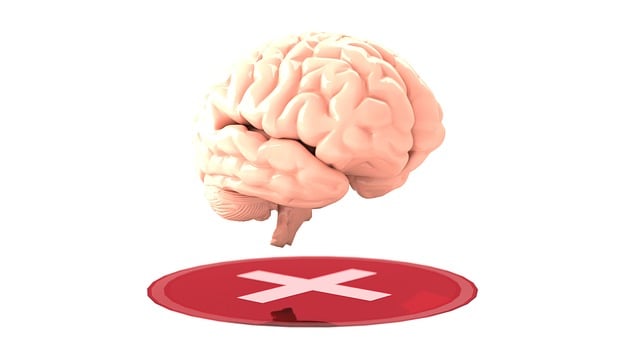Emotion regulation techniques, vital for adults seeking improved mental wellness, are best explored through therapy focused on therapy for adults self-esteem. This approach addresses underlying issues, enhances mental health awareness, and fosters resilience. Techniques like mindfulness, cognitive reframing, journaling, and applying specific exercise guidance improve coping mechanisms, stress management, and self-esteem. Structured therapy sessions with trained professionals help individuals understand emotions, uncover beliefs, and cultivate healthier responses. Integrating these practices into daily life significantly boosts mental well-being and self-esteem by enhancing emotional resilience and positive mindsets.
Emotion regulation techniques are essential tools for maintaining mental well-being, particularly for adults seeking to enhance their self-esteem. This article explores effective strategies to manage emotions, delving into the interplay between emotion regulation and self-worth. We discuss common techniques, the therapeutic role in teaching adults these skills, and practical tips for integrating them into daily life. By understanding and applying these methods, individuals can foster resilience and improve overall emotional health.
- Understanding Emotion Regulation and Self-Esteem
- Common Techniques for Effective Emotion Regulation
- The Role of Therapy in Teaching Adults to Manage Emotions
- Practical Tips for Integrating Emotion Regulation Techniques into Daily Life
Understanding Emotion Regulation and Self-Esteem

Emotion regulation techniques are essential tools for adults seeking to enhance their mental health and overall well-being. Understanding emotional regulation involves recognizing and managing one’s feelings in a healthy way, which is particularly crucial for those with low self-esteem. Self-esteem, or the perception of personal value, can significantly impact an individual’s ability to regulate emotions effectively.
Therapy for adults focused on self-esteem can play a pivotal role in emotional regulation by addressing underlying issues and providing strategies to navigate intense feelings. By fostering mental health awareness, trauma support services, and empowering individuals to understand their emotions, these therapeutic approaches enable clients to develop resilience and improve their quality of life.
Common Techniques for Effective Emotion Regulation

Emotion regulation techniques are a crucial aspect of mental wellness, especially for adults looking to boost their self-esteem and overall well-being. Some common strategies that prove effective in therapy include mindfulness practices, such as deep breathing exercises and meditation, which help individuals stay grounded in the present moment, thereby reducing impulsive reactions. Another powerful technique is cognitive reframing, where individuals learn to challenge negative thoughts and replace them with more balanced perspectives, fostering a sense of calm and resilience.
Additionally, expressive outlets like journaling can be instrumental in processing emotions and gaining insight. Encouraging clients to reflect on their feelings through Mental Wellness Journaling Exercise Guidance allows for self-discovery and emotional release. Similarly, incorporating Mind Over Matter Principles into therapy teaches individuals to manage stress and anxiety by focusing on positive affirmations and reframing challenges as opportunities for growth, ultimately enhancing coping mechanisms and overall mental fortitude.
The Role of Therapy in Teaching Adults to Manage Emotions

Therapy plays a pivotal role in empowering adults to develop robust emotion regulation techniques. Through structured sessions with trained professionals, individuals can learn to understand and process their emotions effectively. This involves uncovering underlying beliefs, identifying triggers, and cultivating healthier coping mechanisms. Mental health education programs design tailored interventions that focus on building inner strength development by teaching skills such as mindfulness, cognitive restructuring, and emotional awareness—all crucial components for self-esteem enhancement.
Moreover, therapy provides a safe space for adults to explore their emotions without judgment, fostering improved risk management planning for mental health professionals. By addressing past experiences and current stressors, individuals can gain insights into their emotional responses and develop strategies to navigate challenging situations with more resilience. This process not only improves overall well-being but also equips them to better manage stress, anxiety, and depression, thereby enhancing their quality of life.
Practical Tips for Integrating Emotion Regulation Techniques into Daily Life

Integrating emotion regulation techniques into your daily routine can significantly enhance mental well-being and foster self-esteem. Start by identifying triggers that often lead to intense emotions; this awareness is key to managing them effectively. Simple mindfulness practices, such as deep breathing exercises, can be incorporated throughout the day to create a sense of calm. When faced with overwhelming emotions, take a moment to pause, focus on your breath, and observe without judgment – this technique is powerful in reducing stress and anxiety relief.
Consider using positive affirmations to counter negative thought patterns. Repeating encouraging statements can boost self-esteem and promote a more positive mindset. Additionally, engage in regular physical activity, as it releases endorphins that contribute to emotional balance and overall happiness. These strategies, combined with cognitive-behavioral therapy for adults, can be transformative tools for developing inner strength and mastering emotion regulation.
Emotion regulation is a powerful tool for enhancing well-being, and understanding its connection with self-esteem is pivotal. Common techniques, such as mindfulness, cognitive reframing, and acceptance, offer effective strategies to manage emotions. Therapy plays a crucial role in teaching adults these skills, providing a safe space to explore and navigate their feelings. By integrating practical tips into daily routines, individuals can foster resilience and improve their overall mental health, thereby enhancing their self-esteem and quality of life.









